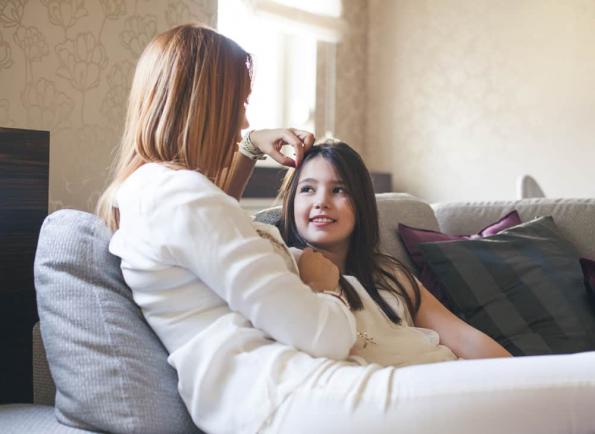
In my family I have two types of siblings: ones who feel guilty and ones who don't. We always make jokes about this at family dinners, but in reality it's not really that funny that half of my siblings don't feel guilty when they do something bad.
Feeling guilty is a healthy reaction to a bad action. The guilt helps us become better people who are more empathetic and kind to others. We obviously need more kind, empathetic people in the world.
Pediatrician Perri Klass says, "Guilt when it's constructive should give a child an appropriate sense of power and agency, a realistic determination to do things differently."
So how do you teach this to your children? You don't want the flip side where your children live in a guilt trap where they think everything is their fault. You need to teach them guilt for the bad, but confidence to help make bad situations better. This really sounds like a tricky thing to teach, but with these four simple tasks, you can teach your children to feel appropriate guilt while still leaving them with their confidence.
1. Tell them when they did something wrong
Don't wait! This is one of the most important things to remember if you want to make sure your children are confident. If you wait, kids will then be worried if they will be punished later on for something. They won't understand what happened.
According to psychologist Tina Malti, "guilt is not really developed in children until about age 6-the moment when children begin to understand that other people have different experiences and perspectives."
Because they can't understand how other people feel until they are older, it is important to talk to your children immediately after they make a poor choice - this will ensure that they learn what is good and bad in the moment, rather than being confused about it later on.
Our culture teaches us that we should take what we want and have no regrets about anything. If you start teaching your children while they're young, they will be able to break the selfish culture and be more empathetic and kind people.
2. Say "we" instead of "you"
Make it a family thing, not just you attacking them. I hope you walk away from this article remembering this. Humans do better and feel better when they are connected to something bigger than themselves. Teaching them that their family expects specific actions from them will give them comfort that they belong to a family who cares about what they do.
3. Explain your reasoning
Explain the morality behind it. Often times people don't or can't wait to change until they know the reasoning behind if an action is good or bad. Little children are especially this way - they walk around asking "why" to everything. You might need some patience to explain your reasoning multiple times, but it will satisfy their curiosity and their learning minds.
4. Ask them how they feel thinking back about it
You can do this either when you are talking to them right after they do the bad thing or a little while afterwards. Let them sort through their feelings. Don't tell them they should or shouldn't feel bad - don't implant feelings. Allow them to learn what they are feeling and how to explain it to someone else. Take the moment to have them express what they are feeling and how they are thinking.
Conversations like this encourage children to be comfortable with who they are and how they think. It empowers them to know who they are and how they make decisions. You can give pointers about empathy for others, showing them they are important and should value other people.
Your child's growth depends on what you teach them. Take the time to read through these four tasks and learn what you can do to better your child's life and build them into a contributing adult.

